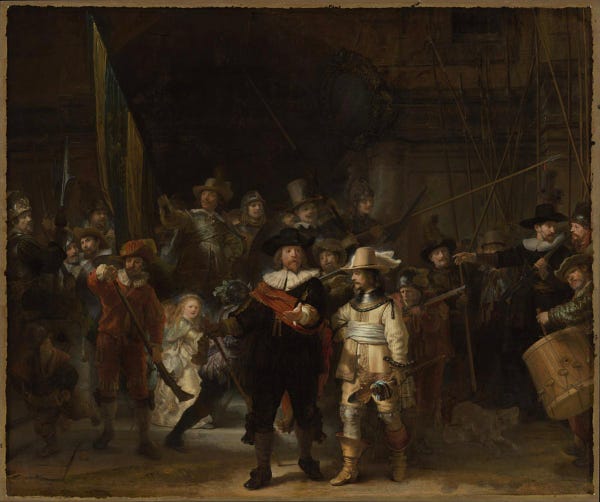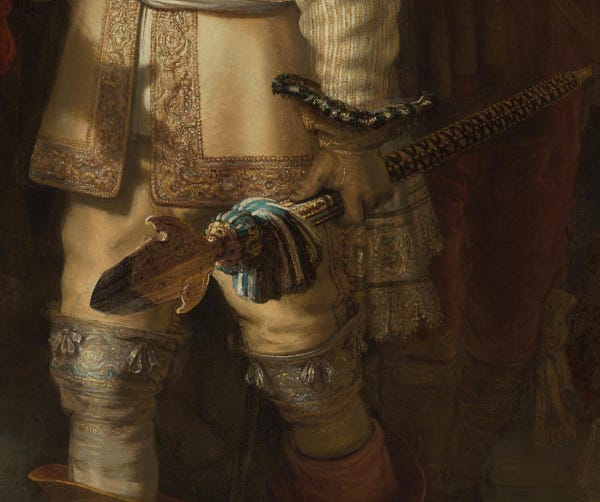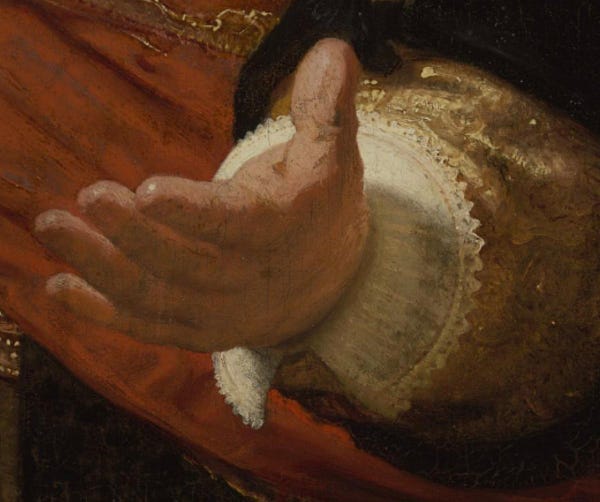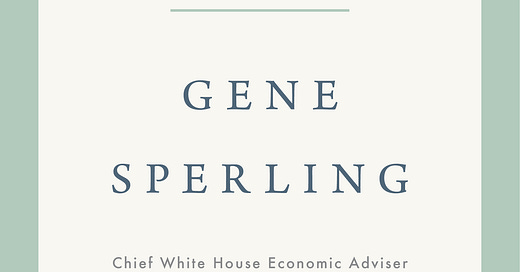Housekeeping:
Membership exclusive live event: I’ll talk with Gene Sperling, Director, U.S. National Economic Council under Presidents Obama & Clinton, about his new book “Economic Dignity” on Thursday at 12 pm ET. Register here.
Founding Member Rate: Like the newsletter? During this trial period, you 50% off the regular cost. Continued thanks to everyone who already has done so!
The World
The first coronavirus vaccine to be tested in people appears to be safe and able to stimulate an immune response against the virus, its manufacturer, Moderna announced. The findings are based on results from the first eight people who each received two doses of the vaccine, starting in March. If the next trials go well, the company says a vaccine could become available for widespread use by the end of this year or early 2021. (New York Times)
With a Tuesday appearance before the Senate Banking Committee pending, Federal Reserve Chair Jerome H. Powell keeps ringing the alarm, warning unemployment could reach 20-25 percent, and urging Congress to spend more. (Finance 202, 60 Minutes)
Lawmakers expect to make significant changes to the Paycheck Protection Program, amid cooling demand for government-backed loans and criticism from business owners who say they can’t tap the funds. (Wall Street Journal)
Oil prices jumped, hitting a one-month high and U.S. crude topping $30. Meanwhile, Chinese oil demand is almost back to pre-virus crisis levels. (Reuters, Bloomberg)
The World Health Organization Director-General said an independent evaluation of the global coronavirus response would be launched as soon as possible. China’s leader, Xi Jinping, supported the move, defended his country’s actions and pledged $2 billion to help fund the W.H.O. (Reuters, New York Times)
The mayor of Brazil's largest city, São Paulo, said its health system could collapse as public hospitals had reached 90% capacity and could run out of space in two weeks. (BBC)
Pope Francis inaugurated the full reopening of St. Peter’s Basilica in the Vatican and Catholic churches across Italy held public Masses for the first time in two months. (Reuters)
UK graduates will struggle as entry-level roles have fallen 23%. The “volatile” jobs market forecast will shrink further as 15% of employers expect to scale back recruitment in 2021. (The Guardian)
The College Board changed how AP test-takers can submit answers after complaints of botched online exams. (Washington Post)
Podcast: Sweden’s state epidemiologist, who argued against a lockdown in that country, explains why his nation's voluntary measures are sustainable. (BBC audio)
Economy
Homebuilder sentiment bounces back in May, after record plunge in April, while LinkedIn data shows U.S. job hiring may have hit bottom in mid-April. (CNBC, CNBC)
Carmen Reinhart, former IMF deputy director, and Kenneth Rogoff, former IMF chief economist — both now Harvard professors — review the economic outlook and explain why "this time really is different.” (Bloomberg)
Japan fell into recession for the first time since 2015, while Germany’s Bundesbank sees early signs of economic recovery. (BBC, Financial Times)
The broadest-ever effort to pump dollars into the global economy has bypassed major emerging markets, leaving them struggling to access liquidity. (Financial Times)
Bankrupted JC Penney plans to spin its properties into separate real estate company, with a 35% stake in a newly created REIT that could be sold to raise cash. (CNBC)
Technology
Uber will cut 3,000 more jobs and close dozens of offices, bringing its total of laid off employees to 6,700, or roughly 25% of its workforce. The company said the uptick in Uber Eats orders isn't enough to make up for the heavy losses in the rides business. (Business Insider)
Major confrontations are increasing between Big Tech and government. Following Justice Department moves toward suing Google and Facebook’s announced purchase of Giphy, the Omidyar Network is unveiling a "roadmap" for an antitrust case against Google. (Axios)
Apple plans to reopen 25 more stores in the U.S., 12 in Canada, and 10 in Italy over the next week. All stores will allow customers to make Genius Bar reservations and pick up items ordered online, but some will only offer storefront or curbside service. (The Verge)
Taiwan Semiconductor Manufacturing Co., the world's biggest contract chipmaker, halted new orders from Huawei Technologies in response to tighter U.S. export controls to limit the Chinese company's access to crucial chip supplies. (Nikkei Asian Review)
FedEx, Microsoft are joining forces to compete with Amazon, providing commercial shipping customers with early warnings of delays from weather, traffic and other mishaps. (Bloomberg)
Smart Links
40th anniversary of Mount St. Helens eruption. (Seattle Times)
'Zombie' fires are burning in the Arctic. (New Scientist)
Commercial airliners are monitoring cities’ CO2 emissions. (Science Daily)
Meet the UK’s new richest person. (The Guardian)
Contact tracing may be a mess in America. (MIT Technology Review)
At Greece beaches, drones detect congested danger zones. (The Guardian)
‘The Last Dance’ ended. Here are the 50 best sports documentaries. (Axios)
Good News
Amsterdam’s Rijksmuseum uploaded a 44.8 gigapixel scan of Rembrandt's 'The Night Watch' with unprecedented detail. (Vice)





Thanks for reading. Did you like the newsletter? Why not subscribe now?



